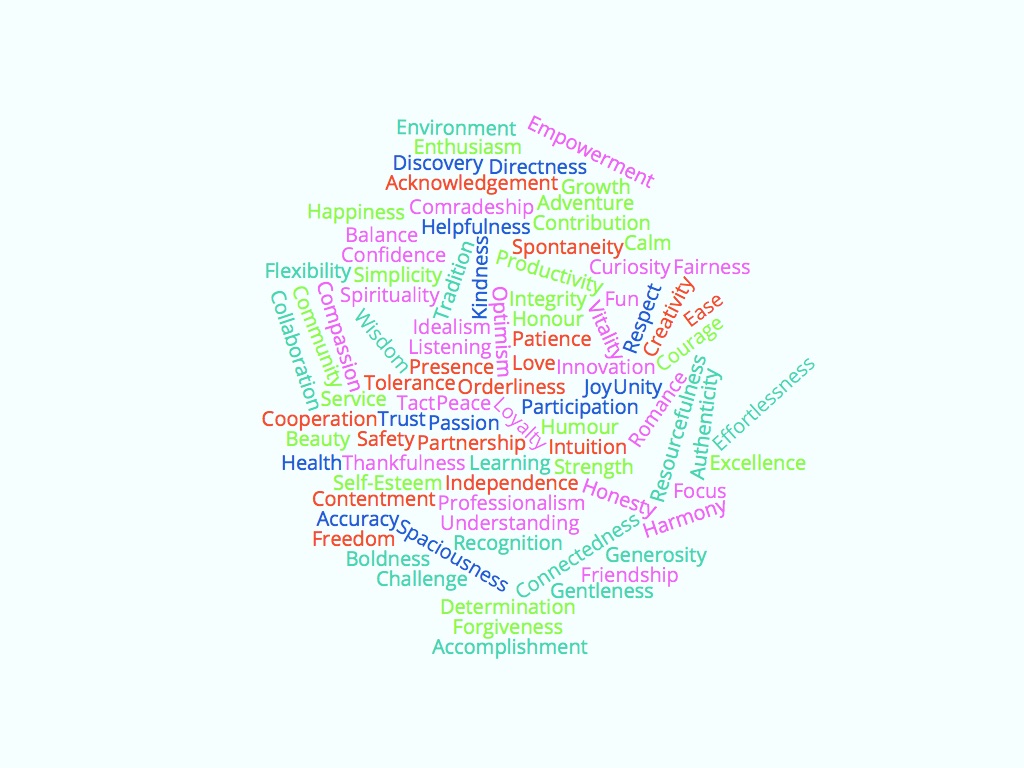It’s natural to ask others for input when making decisions, and when receiving advice from someone we trust and respect, it’s easy to end up being influenced even against our own judgment.
Someone else’s advice may be good for them, but it may not be good for you. Click To Tweet
The kicker is a clash in values. Knowing your values enables you to gain clarity on how much weight to give someone else’s advice, enabling your decision to honor your values and not someone else’s.
Values often drive our decision-making whether we know if or not
Values are what we hold important in life. They differ from morals in that they are not an external code or what we feel we ‘should’ do. We all have them, whether or not we have consciously identified them or not.
Once we know our values, we can use them to live intentionally rather than drifting along and relying on circumstance. Good decisions that have stood the test of time are often based on values even if we don’t know what they are.
For example, in my first career as a lawyer at a City law firm and having just qualified, I was part of a team representing a waste disposal company in their efforts to gain permission to dump waste under one of the cleanest rivers in the country. The uneasiness I felt added to my sense of being in the wrong industry, and not long after that, I decided to leave. It was only with hindsight, that I understood that one of my core values – connection / caring for the environment – had been transgressed.
How to uncover your values
A simple way of uncovering your top values is to work with a set of commonly-held values from a list or the word cloud, bearing in mind that the choice of values is inexhaustible and you can choose values that aren’t listed.
Using the Values Word Cloud work through the steps to define your top 5 values.
Step 1 – Make a long list
Circle the values that jump out to you as being what you hold important in life. Then write these out in a list, and add any values that don’t appear in the word cloud.
Step 2 – Shortlist these and create word-Strings
Reduce your list to the 10 values which are most significant, circling the top 10.
As you reduce the list, you may find that some of are related in the way you define them. You can cluster these into a word-string, for example, Kindness-Love-Service or Kindness-Respect-Compassion under a single word that resonates most strongly for you.
Step 3 – Choose your top 5 values in order
Now choose 5 from your list of 10 and order these from 1 – 5, with 1 being your top value.
Step 4 – Define your values
Once you’ve selected your top values, define what these mean to you. For example, two people may value ‘adventure’ where for one this means travelling to new places, engaging with different communities and people and, for another this may mean continually stepping out of the comfort zone and trying new things.
Using your values to filter advice
Knowing your values can enable you to gain clarity on whether someone else’s advice is good for you.
Sauce for the goose isn’t always sauce for the gander.
If you have two people, where one values freedom and the other values family as top values, they will make different decisions on, say, the same potential opportunity, for example, taking up a new role in another country. The person who values freedom may jump at the chance, while the person who values family may decide to stay put.
Both of these decisions are valid, but personal.
It may sound obvious, yet, how often have you been persuaded by someone else’s clarity, conviction and their sincerity in wanting what is best for you. Those we respect, admire or love are will give you good advice – good advice for them!
You only have the complete picture when you know what your own values are. Otherwise, you end up making a decision on flawed assumptions and living someone else’s dream.
